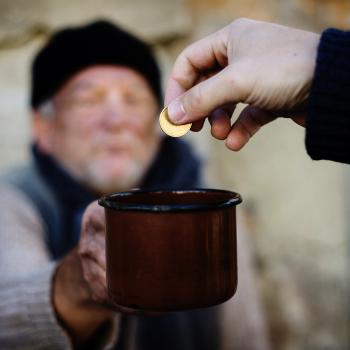All throughout the Gospels, Jesus commands us, and with a sense of immediate urgency, to be ready. In fact, we recently saw one of these commands in the readings from August 11.
“Gird your loins and light your lamps and be like servants who await their master’s return from a wedding, ready to open immediately when he comes and knocks. Blessed are those servants whom the master finds vigilant on his arrival. Amen, I say to you, he will gird himself, have them recline at table, and proceed to wait on them. And should he come in the second or third watch and find them prepared in this way, blessed are those servants. Be sure of this: if the master of the house had known the hour when the thief was coming, he would not have let his house be broken into. You also must be prepared, for at an hour you do not expect, the Son of Man will come.” – Luke 12:35-40
Vigilance. Preparedness. Readiness. These things are woven into many of Christ’s parables, but what exactly are we supposed to be ready for?
Though I’ve only been Catholic for 6 years, the vast majority of my life has been spent in the Christian tradition, and so I’ve heard these particular verses countless times. More often than not, they were presented to me as a call to be spiritually prepared for the end of time. We must be ready, at every hour, for the second coming of Christ. (In my personal experience with the pre-tribulationist Baptist perspective, this meant being ready for the rapture.)
Now, I’ll say there’s more than a nugget of truth to this. Though I’m not so keen on the tribulationist/rapture theology I was raised with, I do believe that Christ will return, and so of course, all Christians should be ready for that day.
However, this interpretation of the scriptures is heavily introspective and puts a tremendous weight on being “right with God” while encouraging detachment from the physical world, and I’m not so sure that’s entirely what Jesus is getting at. What if Christ was referring to something more present? Something that goes beyond the emotional/mental aspects of our faith and into something directly actionable?
One of the magnets that drew me into to Catholicism was its tangibility. In the Mass, we don’t just sit, sing, and listen. We act. We take part in a physical ritual that culminates in an interaction with the true Body and Blood of Jesus. And that physicality of our faith extends into our Christian life outside of Mass. The Church’s teaching does not only include instructions what we are to believe, but what we are to do – like the works of mercy and the teachings on social justice. Jesus even mentions physical actions when he speaks of the final judgment:
For I was hungry and you gave me food, I was thirsty and you gave me drink, a stranger and you welcomed me, naked and you clothed me, ill and you cared for me, in prison and you visited me.’ Then the righteous will answer him and say, ‘Lord, when did we see you hungry and feed you, or thirsty and give you drink? When did we see you a stranger and welcome you, or naked and clothe you? When did we see you ill or in prison, and visit you?’ And the king will say to them in reply, ‘Amen, I say to you, whatever you did for one of these least brothers of mine, you did for me. Matthew 25:35-40
Of course, here we don’t just see a command about how to treat other people. We’re receiving instruction on how to actually serve Christ. We’re being told exactly where to expect Jesus and what to do when we see him.
And so I say all that to say this: Being a Christian is not something that is simply spiritual and emotional. Being a Christian is about action – physical action in the real world. Sharing the Gospel requires tangible works, not just words and pamphlets.
And of course, so many of these works are steeped in radicalism. Radical forgiveness, love, and mercy. Care for those who may not, according to the standards of this world, deserve it. Mercy for those who have not shown mercy to others. Love for those who are extremely hard to love. Forgiveness for those we do not want to forgive, or who do not care to be forgiven.
So when Jesus tells us to be ready, perhaps he’s not just telling us to be ready for his return. Perhaps he’s commanding us to be ready to answer a radical call to action, to be vigilant in our pursuit of justice, and to always be prepared to live the Gospel in a real, physical way.











